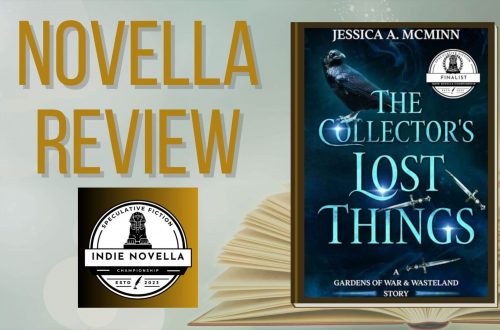The first line of your book is the most important.
Or is it?
I’ve come across the piece of advice many times in writing classes and online writing communities. The general consensus is thus: the first line of any book is the most important because it’s the first line the reader sees. It’s this first line which sets up the entire book. Many readers will pick up a book and decide whether to buy it based on whether the first line interests them enough. And agents, who read hundreds if queries a day, are only drawn to a perfect and intriguing first line.
Simply put, as an aspiring author, your first line carries a lot of expectation and responsibility. It needs to pack a punch. It needs to grab your reader by the throat and refuse to let go.
But I disagree. Here’s why I think the first line isn’t all that important:
A Book is more than its First Line
It sounds obvious, but a book is more than just the first line. A book is thousands of lines and complex prose which come together to tell a complete story of character’s joys and woes. A book is a tale of suffering and pleasure and moral lessons which a first line cannot convey. To judge a book solely on its first line is to dismiss 99% of the rest of the book. Personally speaking, I’ve read many books where the first line didn’t intrigue me at all. I fact, my favourite ever books were the ones which I struggled to get into at first for whatever reason – a slower opening, maybe. But these books then revealed character and depth that made me fall in love. It’s often the books with the witty openers that end up feeling shallow to me.
Honestly, I never remember the first line of books. I remember the story, the characters, the journey, the ending, and the way the book made me feel. I couldn’t even tell you the first line of my favourite books. But I could probably tell you the last line.
Do you remember the first line to your favourite reads?
People Judge a Book by its Cover
You may hate to admit it, but it’s true. Readers are initially drawn to beautiful book covers before they even flip open the first page to read the first line. Arguably, this makes your book cover much more important in catching the reader’s attention than the first line.
A lot of people will also glance at the blurb on the back cover to decide if the book interests them before they open it. So again, writing an intriguing blurb to sum up what the story is about is more important than the first line. It’s this description of your book that people will see on Goodreads or the Amazon store before they even get to the first line. By seeing the cover and knowing what the book is about, they’ve already made a judgement on whether they are interested in this book.
The First Page is more Important
At best, a first line can contain some witty metaphor to sum up the story. At worst, the line is some throw away sentence which doesn’t relate to the story at all, and is designed around shock value to trick you into buying the book. For that reason, the first line isn’t enough to convince me that the rest of the book lives up to the same standards. It isn’t proof of quality.
I’ve met people who like to read the first page of a book before deciding whether it’s for them. Some even like to skip ahead and check the middle to make sure that the rest of the book lives up to the same standards. You might not have the time to stand around in a bookstore reading random pages, but most ebooks come with the option to read the first few pages or the first chapter to gauge the tone and quality of the book. You might be able to judge whether a book is for you by the first line, but you’d certainly be able to tell by the end of the first page.
To that end, I don’t think the first line is as important as the first page – or the first 250 words. That said, middles and endings are just as important as beginnings. Don’t neglect the quality of your story just to polish your first pages to perfection.
A Query is more Important for Agents
If you’re an aspiring author, then chances are you’ve polished your story to perfection and have agonised over querying. The maddening truth about querying is that the industry is incredibly subjective. What works for one agent will not work for another. You might come across agents who value the first line above all else. And you might come across those who value the first page. The key is to research potential agents so you can tailor your query to them like you would tailor a CV/resume for a potential job application. But I’d argue, as with job applications, your cover letter, or query in this case, is what will catch the agents attention.
To that end, you need an exceptional query to match your book, and I’d argue this needs more attention than your first line. Your first page and sample chapters need to be great, but at this stage your marketing your book at an agent. And don’t forget your dreaded synopsis! The synopsis serves as an example to show you know how to plot and write a book to completion. You might have a killer first line that all your betas love, but if you’re query and synopsis falls flat, an agent may not care enough to read on.
Writer’s Worry Over First Lines
Telling new writers that the first line is the most important can be paralysing. As I explored in my blog on perfectionism, sometimes new writers can become stuck with this fear that their writing isn’t good enough. If the first line isn’t perfect, then it can be harder to move on and begin writing the rest of the paragraph, scene, chapter, and book. I’ve spoken to many writers who have suffered from this debilitating fear, and I’ve been there myself – stuck for a whole month because I couldn’t get that first line right. For some writers, this first line sets up the entire book for them and they cannot proceed without it.
By telling writers that the first line is literally the most important line in the book, you’re adding to the pressure.
What do you think about first lines? Do you agree that the first line is the most important? Do you judge books based on their first line? I’d love to hear your thoughts!




